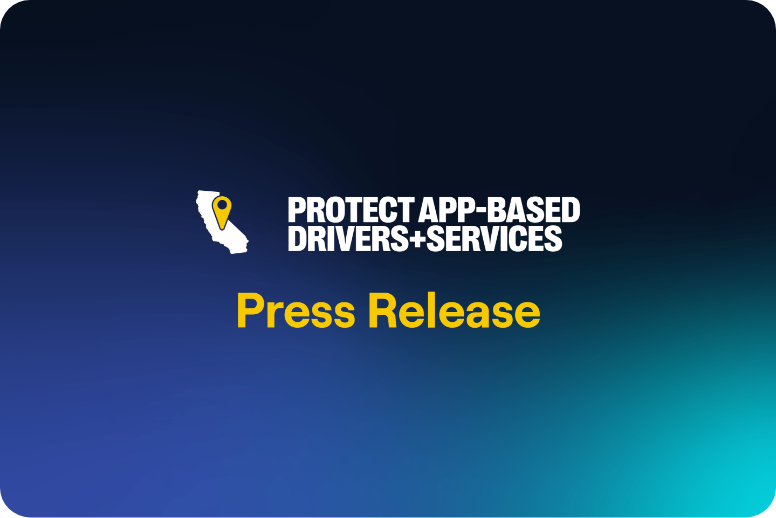By Mike Montgomery
The Golden State has served as the country’s innovation hub for decades, and has acted as the incubator for countless achievements in science and technology. That same spirit of innovation also helped drive development of the apps we use today to make our daily routines easier. These convenience platforms have changed daily aspects of our lives–from how we commute or meet up with friends, to how we order from a favorite local restaurant. These platforms have also created economic opportunity–including the option for a person to work and earn on their own schedule. Driving or delivering with these app-based platforms has helped people from all walks of life make ends meet.
Unfortunately, legal challenges to Prop 22 – the state’s landmark law to protect the ability of Californians to work and earn independently through app-based platforms – have consistently put our record of innovation to the test. Most recently, the Supreme Court of California agreed to hear a challenge by special interests to the law after an appeals court confirmed Prop 22’s validity.
Prop 22 helped protect the low-barrier, flexible earning opportunities that millions of Californians utilize. The landmark law protected the ability of Californians to supplement their incomes, support their passions, or just earn some extra money with work that is accessible to millions of people in our state. But since the law was enacted, these independent earning opportunities are under attack. Last year an Alameda County judge ruled against Prop 22, despite 59% of voters casting a yes vote for the ballot measure. Thankfully, the California Court of Appeal recently overturned that ruling and affirmed the law.
California’s voters and courts have made clear that Prop 22 should be here to stay. Yet, special interests are actively attempting to subvert the democratic process by challenging the legitimacy of Prop 22 and pushing for app-based companies to categorize drivers as traditional employees, despite how Californians voted and against the wishes of the vast majority of workers.
Simply put, the appeal to the California Supreme Court is an attempt to undermine the will of the people. The pressure of the special interests groups has worked and our state’s Supreme Court has now decided to hear the case. As we wait for a hearing date, it’s important to remember this isn’t the first time the court has settled the question of whether voters can enact policies through ballot initiatives that the state constitution reserves for “the Legislature.” Ultimately, the Court has established a clear precedent that the power of the legislature and voters is equal.
Opponents of Prop 22 may believe that they are standing up for workers, but the fact is app-based workers are hugely in favor of this law. In fact, according to a recent survey, 87% of drivers in the state support this law.
The special interests opposing Prop 22 are powerful, but we cannot stand by and allow them to undermine the democratic process. In concept, democracy is simple, the majority of voters voted to represent the voice of the people. In practice, we are learning that there are challenges to protecting the will of that majority. California’s voters, app-based workers, consumers and businesses know Prop 22 is the law of the land, and that it has encouraged innovation and helped grow our state’s economy. My hope is that the vocal minority who oppose this law will someday agree.
Mike Montgomery is Executive Director of CALinnovates, a San Francisco-based technology coalition that advocates on behalf of the technology community.
Read the original article in full ↗
![]()
The Latest News

Opinion
I’m an Instacart driver: California Supreme Court must protect my job
By Stephanie Whitfield It may sound dramatic to say that app-based driving saved my life, [...] Read more
News
As Prop. 22 heads to California Supreme Court, support doesn’t break along ideological lines
By Bob Egelko Proposition 22, the 2020 ballot initiative sponsored by Uber and Lyft that [...] Read more